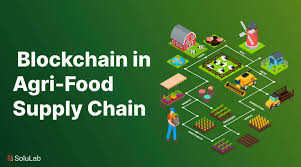Africa’s agricultural sector is a significant contributor to the continent’s economy, employing millions of people and generating substantial revenue. However, the sector faces numerous challenges, including inefficient supply chains, lack of transparency, and limited access to finance. These challenges hinder the growth and development of the sector, affecting the livelihoods of farmers, traders, and consumers. Blockchain technology has emerged as a potential solution to these challenges, offering a secure, transparent, and efficient way to manage agricultural supply chains.
Challenges in African Agricultural Supply Chains
African agricultural supply chains are plagued by several challenges, including:
- Lack of transparency: Supply chains are often opaque, making it difficult to track the movement of goods, verify authenticity, and identify bottlenecks.
- Inefficient logistics: Poor infrastructure, inadequate storage facilities, and inefficient transportation systems lead to post-harvest losses and delays.
- Limited access to finance: Smallholder farmers and traders often struggle to access finance, hindering their ability to invest in their businesses and expand their operations.
- Food safety and quality control: Ensuring the quality and safety of agricultural products is a significant challenge, particularly in supply chains with limited visibility and control.
How Blockchain Can Improve Agricultural Supply Chains
Blockchain technology can address these challenges by providing a secure, transparent, and efficient way to manage agricultural supply chains. Here are some ways blockchain can improve supply chains:
- Increased transparency: Blockchain technology allows for real-time tracking and monitoring of transactions, enabling stakeholders to verify authenticity and identify bottlenecks.
- Improved logistics: Blockchain-based systems can optimize logistics by providing real-time information on inventory levels, shipment status, and delivery times.
- Enhanced food safety and quality control: Blockchain technology can help ensure the quality and safety of agricultural products by providing a tamper-proof record of transactions and movements.
- Increased access to finance: Blockchain-based systems can provide a secure and transparent way to verify transactions, enabling smallholder farmers and traders to access finance more easily.
Blockchain Applications in African Agriculture
Several blockchain-based initiatives are underway in Africa, aiming to improve agricultural supply chains. Some examples include:
- Farm-to-table platforms: Platforms like Farm-to-Table and Twiga Foods use blockchain technology to connect farmers directly to consumers, reducing intermediaries and increasing transparency.
- Supply chain management systems: Companies like Esoko and AgroCenta are developing blockchain-based supply chain management systems to track the movement of goods and verify authenticity.
- Digital marketplaces: Digital marketplaces like Mali’s Appui au Développement de l’Enterprise are using blockchain technology to connect buyers and sellers, increasing transparency and efficiency.
Benefits of Blockchain in African Agriculture
The adoption of blockchain technology in African agriculture can bring numerous benefits, including:
- Increased efficiency: Blockchain technology can reduce transaction costs, improve logistics, and increase the speed of payments.
- Improved transparency: Blockchain technology can increase transparency, reducing the risk of corruption and ensuring that stakeholders have access to accurate information.
- Enhanced food safety: Blockchain technology can help ensure the quality and safety of agricultural products, reducing the risk of foodborne illnesses.
- Increased access to finance: Blockchain technology can provide a secure and transparent way to verify transactions, enabling smallholder farmers and traders to access finance more easily.
Challenges and Limitations
While blockchain technology has the potential to transform African agricultural supply chains, several challenges and limitations need to be addressed, including:
- Regulatory frameworks: Clear regulatory frameworks are needed to govern the use of blockchain technology in agriculture.
- Infrastructure: Poor infrastructure, including limited internet connectivity and inadequate digital literacy, can hinder the adoption of blockchain technology.
- Scalability: Blockchain technology needs to be scalable to accommodate the large number of smallholder farmers and traders in Africa.
- Cost: The cost of implementing blockchain technology can be prohibitively expensive for smallholder farmers and traders.
Conclusion
Blockchain technology has the potential to transform African agricultural supply chains, increasing transparency, efficiency, and food safety. While challenges and limitations need to be addressed, the benefits of blockchain technology are clear. As the technology continues to evolve, it is likely to play an increasingly important role in shaping the future of African agriculture. By leveraging blockchain technology, African farmers, traders, and consumers can benefit from improved supply chains, increased access to finance, and enhanced food safety.

